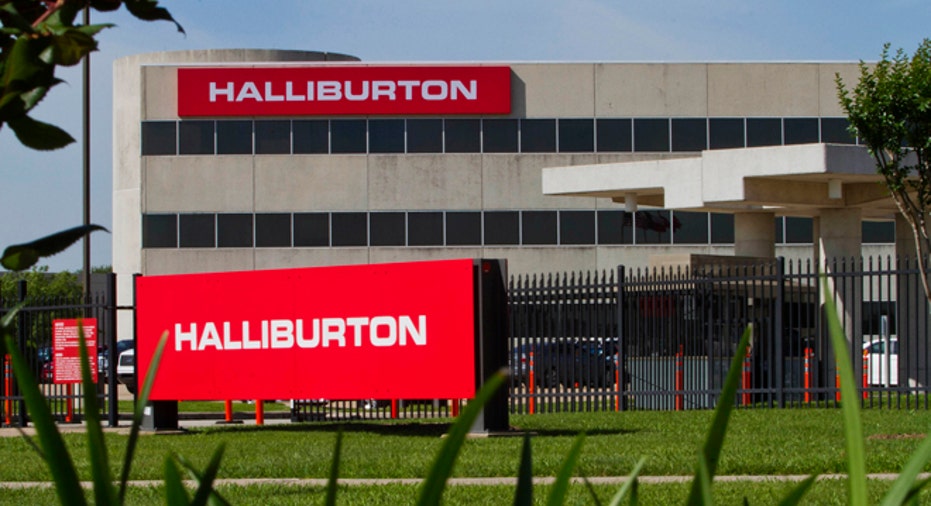Halliburton Says Oil Market Has Turned a Corner

Expenses from its scrapped Baker Hughes (NYSE:BHI) merger dragged Halliburton (NYSE:HAL) to a second-quarter loss, but the oilfield services giant says the oil market appears to be on the road to recovery.
A nearly two-year slump for oil prices has put heavy pressure on energy producers and companies like Halliburton, the second-largest oilfield services firm behind Schlumberger (NYSE:SLB). As global crude prices were cut by more than half, drillers idled a large number of rigs in the U.S. and international markets. The latest report from Baker Hughes out on Friday said U.S. producers have taken 410 rigs offline over the last year.
However, the July rig count was up by seven rigs compared to the prior month, while Canada saw a larger jump of 14 rigs. Halliburton said Wednesday the “North America market has turned.” The U.S. rig count “reached a landing point during the second quarter” after falling 78% from a November 2014 peak, signaling a rebound in drilling activity. The Houston-based company also said new rigs reflect growing confidence among operators amid stabilizing energy prices.
“You can't underestimate the positive change in attitude,” Halliburton CEO Dave Lesar said during a conference call with analysts. Oil’s return to $50 a barrel in the spring “was a critical emotional milestone for our customers,” he added.
Halliburton projected a modest uptick in North America’s rig count during the second half of 2016. Internationally, the company said it continues to manage costs and gain market share.
On Wednesday, U.S. oil futures traded mostly higher, holding just under $45 a barrel. Earlier in the session, ahead of the U.S. Energy Information Administration’s inventory report, oil fell as far as $43.69 a barrel, the lowest mark since May 10. The EIA said crude stockpiles narrowed by 2.3 million barrels last week, more than an expected draw of 2.1 million barrels. Oil supplies have now declined for nine consecutive weeks.
With drilling activity picking up, the company signaled future price increases. Lesar said producers will likely seek to lock in lower prices, while Halliburton and other oilfield services companies need to charge more in order for the industry to remain viable. “We’ll end up in the middle somewhere, like we always do,” Lesar said, adding that producers likely know “in their heart of hearts” that prices need to increase in the long run.
Lesar also said Halliburton doesn’t believe the U.K.’s Brexit vote to leave the European Union will have a dramatic effect on its business in the North Sea.
For the second quarter, Halliburton reported a loss of $3.21 billion, or $3.73 a share. The company earned $54 million, or 6 cents a share, in the year-ago period.
| Ticker | Security | Last | Change | Change % |
|---|---|---|---|---|
| SLB | SLB LTD. | 50.70 | +1.19 | +2.40% |
| HAL | HALLIBURTON CO. | 34.98 | +1.14 | +3.37% |
| BHI | NO DATA AVAILABLE | - | - | - |
Revenue tumbled 35% to $3.84 billion. Halliburton’s North American operations posted a 43% drop in revenue due to slower drilling in the U.S. land sector. Shale plays, where producers rely on the expensive combination of hydraulic fracturing and horizontal drilling, were particularly affected by the oil downturn.
Costs tied to the termination of the Baker Hughes deal totaled $3.52 billion. Halliburton also booked $423 million in other charges. Excluding one-time expenses, Halliburton recorded an adjusted second-quarter loss from continuing operations of 14 cents a share. Wall Street analysts were looking for a larger adjusted loss of 19 cents a share. Revenue also beat the consensus estimate of $3.75 billion.
Halliburton and Baker Hughes called off their $35 billion merger in May after regulators in the U.S. and elsewhere scrutinized the deal over antitrust concerns. In April, the Justice Department moved to block the deal.
Haliburton shares fell nearly 2% in recent action. The stock has gained roughly 30% since the start of 2016.



















